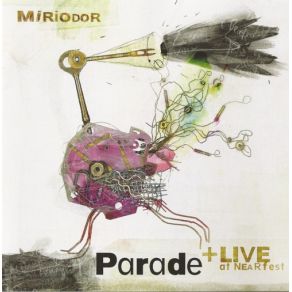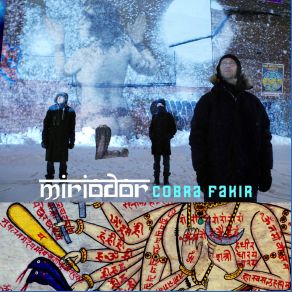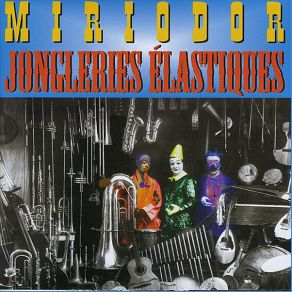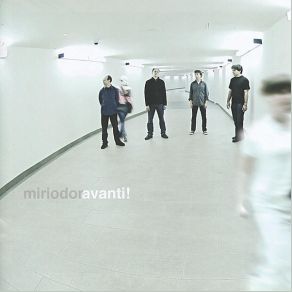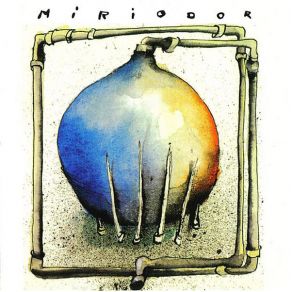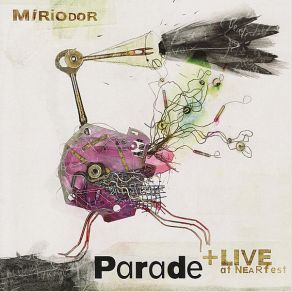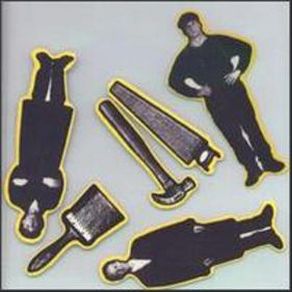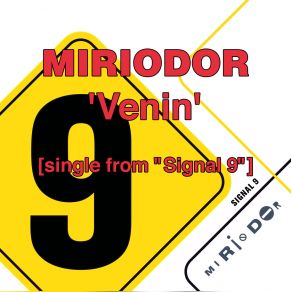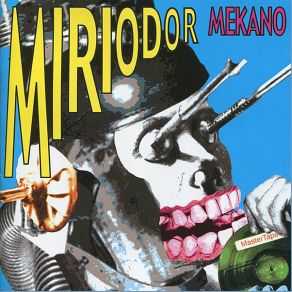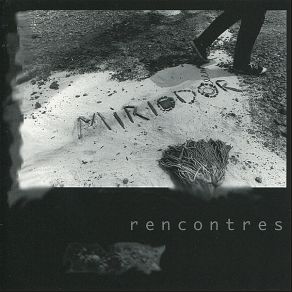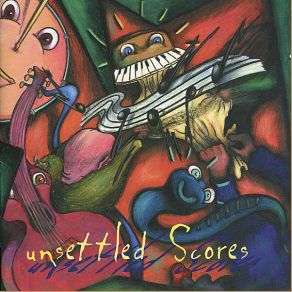Miriodor
Wikimp3 information about the music of Miriodor. On our website we have 16 albums of artist Miriodor. You can find useful information and download songs of this artist. We also know that Miriodor represents Rock genres.
Biography
[Edit]As of 2013 and the release of Cobra Fakir, Montreal avant-prog group Miriodor were still carrying the flag they first hoisted over 30 years earlier as one of the first groups on the "rock" side of the Quebec-based musique actuelle equation. At their inception, Miriodor could also be viewed as North American practitioners of the Rock in Opposition (RIO) style pioneered by such European groups as Henry Cow, Etron Fou Leloublan, Débile Menthol — instrumental prog rock with the requisite technical skill and virtuosity but none of the pomposity that dragged down better-known prog outfits. Thanks to a quarter century of continued support from the Cuneiform label, Miriodor have documented their steady artistic growth on one CD after another, without the need to compromise their music according to popular tastes in the rock music marketplace.
The band was founded in Quebec City by keyboardist Pascal Globensky and multi-instrumentalist François Émond (violin, flute, clarinet, keyboards) in 1980 and went through a number of personnel changes before stabilizing as a sextet in 1983. This lineup, which included drummer Rémi Leclerc, saxophonist Sabin Hudon, keyboardist/bassist Marc Petitclerc, and bassist/guitarist Denis Robitaille, recorded the first Miriodor vinyl LP, Rencontres, as well as a cassette-only release, Tôt ou Tard, which featured the quartet of Globensky, Émond, Leclerc, and Hudon joined by original sextet members Petitclerc and Robitaille on three tracks. By the fall of 1984 Petitclerc and Robitaille had dropped out of the band and the remaining foursome moved to Montreal to continue the Miriodor saga.
However, by 1987 the Miriodor story was beginning to look like "the Incredible Shrinking Band," as group co-founder Émond departed and Globensky was now the only Miriodor member who had been with the group since its 1980 inception. Nevertheless, with the trio members of Globensky, Leclerc, and Hudon all playing synthesizers and embracing the possibilities of MIDI technology, the band conjured up a wide range of instrumental voicings and textures, and was able to maintain a sound that often suggested a larger — but far from heavy-handed — ensemble.
In 1988 Miriodor began their relationship with Cuneiform, which released the trio's eponymously named label debut that year. After the dawn of the CD era, Miriodor was re-released with the addition of the quartet tracks from Tôt ou Tard featuring Émond; still later (1998), Cuneiform reissued the earlier sextet album Rencontres on CD, and included on this disc the Tôt ou Tard tracks that also featured Petitclerc and Robitaille.
As the 1990s began, Miriodor appeared to have comfortably settled into its trio lineup of Globensky, Hudon, and Leclerc with the 1991 Cuneiform CD 3è Avertissement (3rd Warning), which featured packaging nearly as intriguing as the music; in the place of the usual jewel box front-cover tray card was a square plastic bag with six little cardboard cutouts — each of the three bandmembers and a hammer, paintbrush, and saw — floating around inside. In fact, Miriodor would remain a trio for a while longer, but just not this trio. In 1993-1994, Hudon amicably eased himself out of the world of Miriodor to pursue a career in television production, and in came a new member, Bernard Falaise, who would soon prove to be one of the most diverse and acclaimed guitarists associated with musique actuelle in all its forms: rock-based, jazz-based, experimental, free improvisation — he would be all over the map with Miriodor and many other groupings (sometimes paired with Leclerc) for the next decade and beyond.
On Miriodor's next Cuneiform CD, Jongleries Élastiques (Elastic Juggling), released in 1996, the core trio was now Globensky, Leclerc, and Falaise, with Hudon in a sort of quasi-bandmember status before his final departure. But the idea of a trio relying completely on electronic technology to replicate the sounds of a large ensemble were left behind, and "the Incredible Shrinking Band" now drew on a slew of guest artists (notably a number of members of Claude St-Jean's L'Orkestre des Pas Perdus, including St-Jean himself on trombone, Jean-Denis Levasseur on flute, and Ivanhoe Jolicoeur on trumpet) to add new colors and textures to Miriodor's sound palette on selected tracks.
And Miriodor was not merely a studio construct in 1996, making concert and festival appearances that year in Baltimore, Montreal, and St-Malo (France). With the group's music as difficult to pigeonhole as ever, it is interesting to note that Miriodor's Baltimore set was performed at ProgScape '96, a progressive rock showcase, and the very next week they played at the Montreal Jazz Festival (earlier festival appearances had included the Festival International de Musique Actuelle de Victoriaville in 1988). Clearly, festival programmers and audiences with differing musical backgrounds and sensibilities were attracted to the music of Miriodor, regardless of how their ears might have been preconditioned. The enthusiasm of "jazz" fans is particularly noteworthy, as Miriodor's music is often thoroughly (and intricately) composed, with little to no emphasis on improvisation. Yet the allure is easy to grasp, given the music's forward momentum, melodic accessibility, contrasting moods, and surprising juxtapositions, not to mention the technical skills and nimble playing of the players themselves.
The trio of Globensky, Leclerc, and Falaise became a quartet in 1998 with the addition of bassist/keyboardist Nicolas Masino, and this group recorded Mekano, released (again on Cuneiform) in 1991. Saxophonist Marie-Chantal Leclair was also featured prominently on this CD, which included violinist Marie-Soleil Bélanger as one of the guest musicians as well. The core quartet (with members collectively responsible for all of the composing and arranging) along with Leclair and Bélanger then appeared at the 2002 NEARfest in Trenton, New Jersey — a clear artistic highlight amidst a sea of otherwise routine and sometimes bombastic prog rock, Miriodor were rapturously received by a clear majority of those in attendance and invited back by the organizers for a NEARfest pre-festival show in 2003.
The bandmembers remained active in 2004, writing and recording music for yet another Cuneiform release with guest participation by Swedish composer/accordionist/keyboardist Lars Hollmer on several tracks, as well as classical bassoonist Lise Millet. The studio CD was issued as part of a two-disc package in 2005; Parade + Live at NEARfest includes on its second disc the band's entire set (mixed by Bob Drake) that had garnered such justifiable enthusiasm at NEARfest 2002. And in 2005 — 25 years after Pascal Globensky and François Émond formed the first incarnation of Miriodor — the group was back in front of audiences at the Gouveia Art Rock Festival in Portugal, club shows in Montreal, and the Guelph Jazz Festival in Guelph, Ontario. These concerts featured Ipso Facto violinist Chantal Bergeron as a replacement for the departing Marie-Soleil Bélanger, and the band's Gouveia set included guest appearances by Lars Hollmer and Belgian bassoonist Michel Berckmans.
In September 2007 Miriodor performed at Le Festival des Musiques Progressives de Montreal — joined on-stage by Hollmer on accordion during "Talrika," a composition he wrote for Parade — and two years later were scheduled for a return engagement at the FMPM in September 2009 to perform music from their seventh Cuneiform CD, Avanti!, released in May of that year. They preceded their 2009 FMPM appearance with an outdoor show opening for Van der Graaf Generator at the Festival d'été de Québec in Quebec City in July, with the band joined on-stage by saxophonist Pierre Labbé, who had contributed fiery tenor saxophone to Avanti! Labbé also performed with Miriodor when the group played a few months later at the FMPM, in what turned out to be the last presentation of the festival, whose promoters announced the event's end — despite its growing popularity and success — shortly after the last notes were heard from the stage. Roughly concurrent with the final FMPM, the ProgQuébec label released Live 89, a collection of live Miriodor tracks recorded by the Globensky/Leclerc/Hudon trio version of the group 20 years previously.
In the fall of 2013, Miriodor returned with another new studio album on Cuneiform, Cobra Fakir, which found the band returning to a trio lineup that harked back to the Jongleries Élastiques era: Falaise, Globensky, and Leclerc. However, this time there were no guest appearances, as the three bandmembers multi-tracked a wide array of instruments — Falaise on guitars, bass, keyboards, banjo, and turntable; Globensky on keyboards, synths, and piano; and Leclerc on drums, percussion, keyboards, and turntable — to chart new directions while maintaining the complex, melodic, atmospheric, and engaging sound that is uniquely Miriodor. Bassist/keyboardist Nicolas Lessard joined the band for the live premiere of Cobra Fakir material at North Carolina's ProgDay festival in August 2013, and the quartet of Falaise, Globensky, Leclerc, and Lessard also performed a CD release concert at Montreal's Le Belmont venue in October. With fire, wit, drive, and spirit, Miriodor have continued their unconventional musical adventure for over three decades and counting.
Featuring albums
Title: Unsettled Scores
Artist: Various Artists & Cuneiform Artists cover Cuneiform Artists
Genre: Rock

